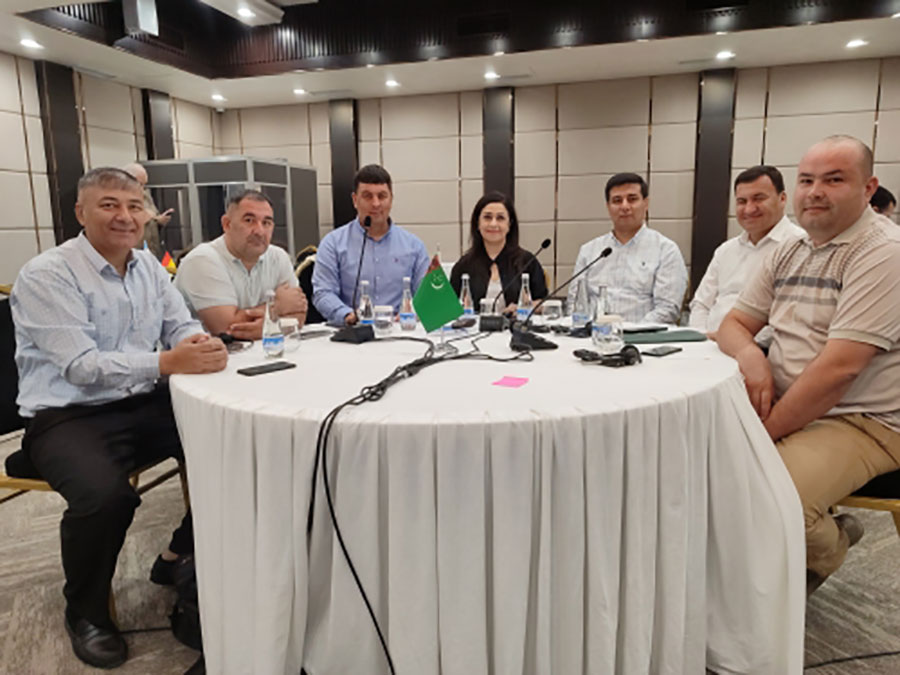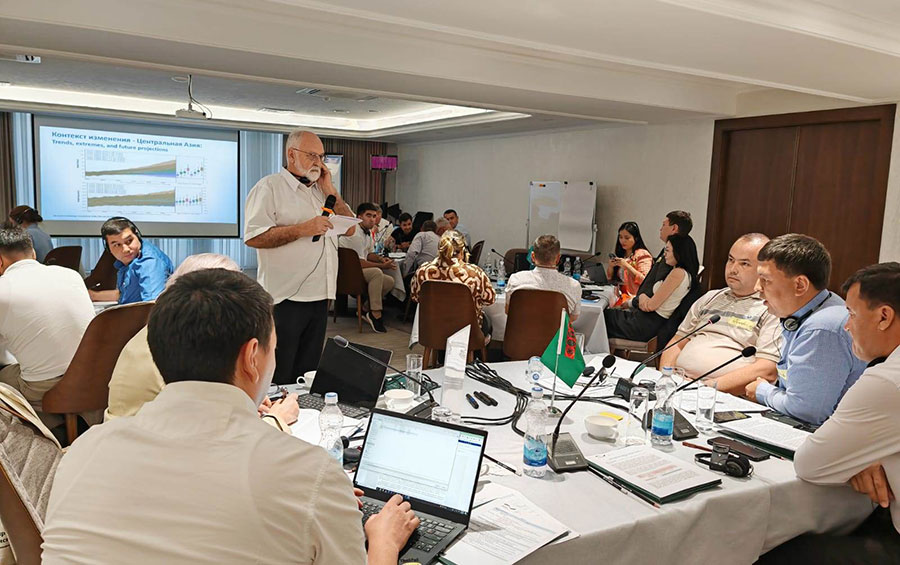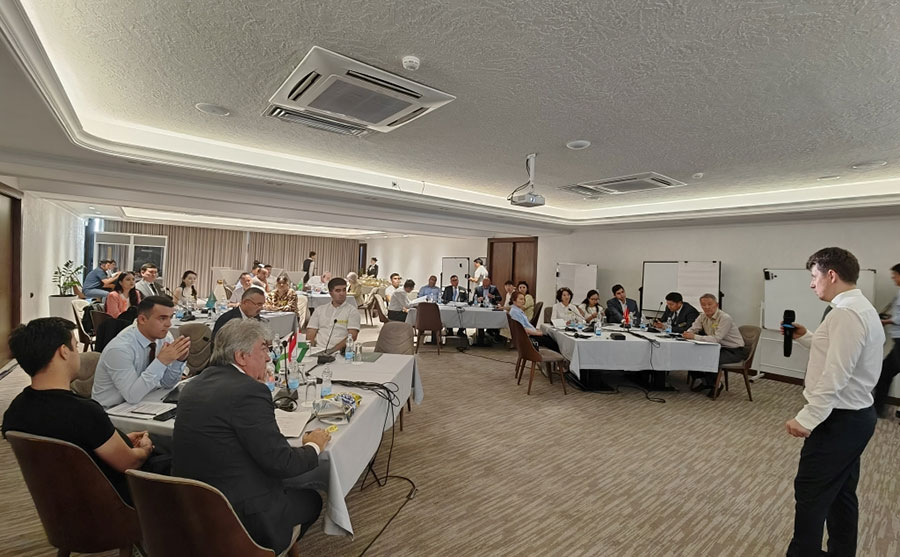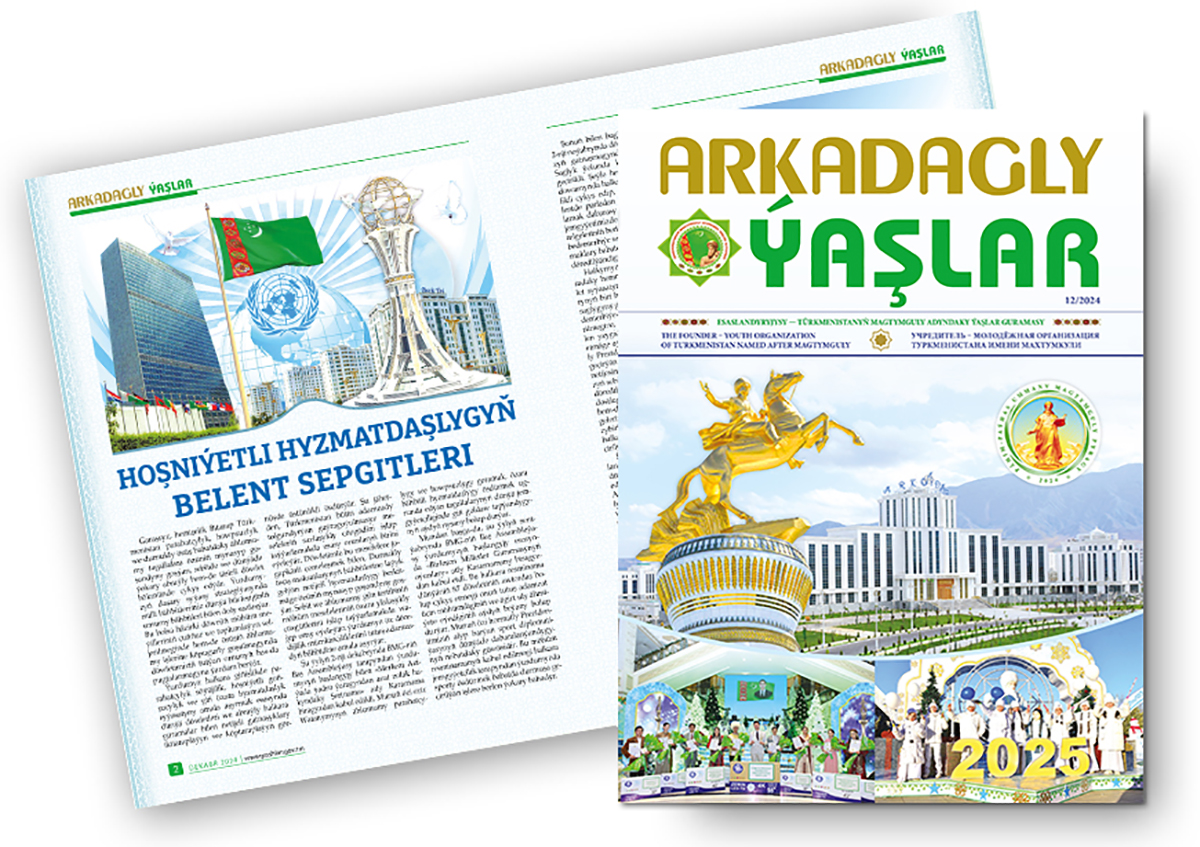At the Central Asian University of Environmental Studies and Climate Change (Tashkent, Uzbekistan), two streams of three-day courses were held for state and public ecologists with the aim of training instructors in the direction of «climate risk assessment and capacity development».

The first session took place from the fourth to the sixth, the second - from the ninth to the tenth of July, with a preparatory seminar held on the eighth. Delegations of ten people from five countries in the region, including Turkmenistan, were invited for training. In total, it was planned to train 250 representatives of the region - equally for each state.
The action was conceived and carried out step by step within the framework of the regional program of the German Society for International Cooperation entitled «Climate Risk Management in Central Asia».
Already at the plenary meeting, country teams presented the results of their «homework» - their vision of the stakeholder engagement process and the scope of response for one of the consequences, or emergency events, that may be related to climate. Students, according to the conditions of the classes, compiled a comparative analysis, assessed climate risks and scientifically substantiated adaptation measures applicable to the soil and climatic conditions of the Central Asian countries.

The expert group of organizers, for their part, proposed climate change scenarios for the conditions of Central Asia and a methodology for assessing climate risks for the attention of those gathered. The work package of the sessions included five areas, including the development of training materials, conducting online sessions for trained trainers, who will subsequently participate in the dissemination of knowledge, planning and implementation of events and actions in the field of sustainable development and adaptation.
As the organizers emphasized, the purpose of the classes was to provide a comprehensive understanding of the process of assessing climate risks, their scale and transboundary nature, and identifying critical situations arising from climate change.

Also, an important part of collegial communication was intercountry and intersectoral scientific and practical exchange. During classes and on the sidelines of the training field, students were able to enrich their knowledge and experience, discuss current issues of maintaining river basins in a stable condition with colleagues from other countries, share ideas and their developments on the stated topic, and establish professional contacts.








